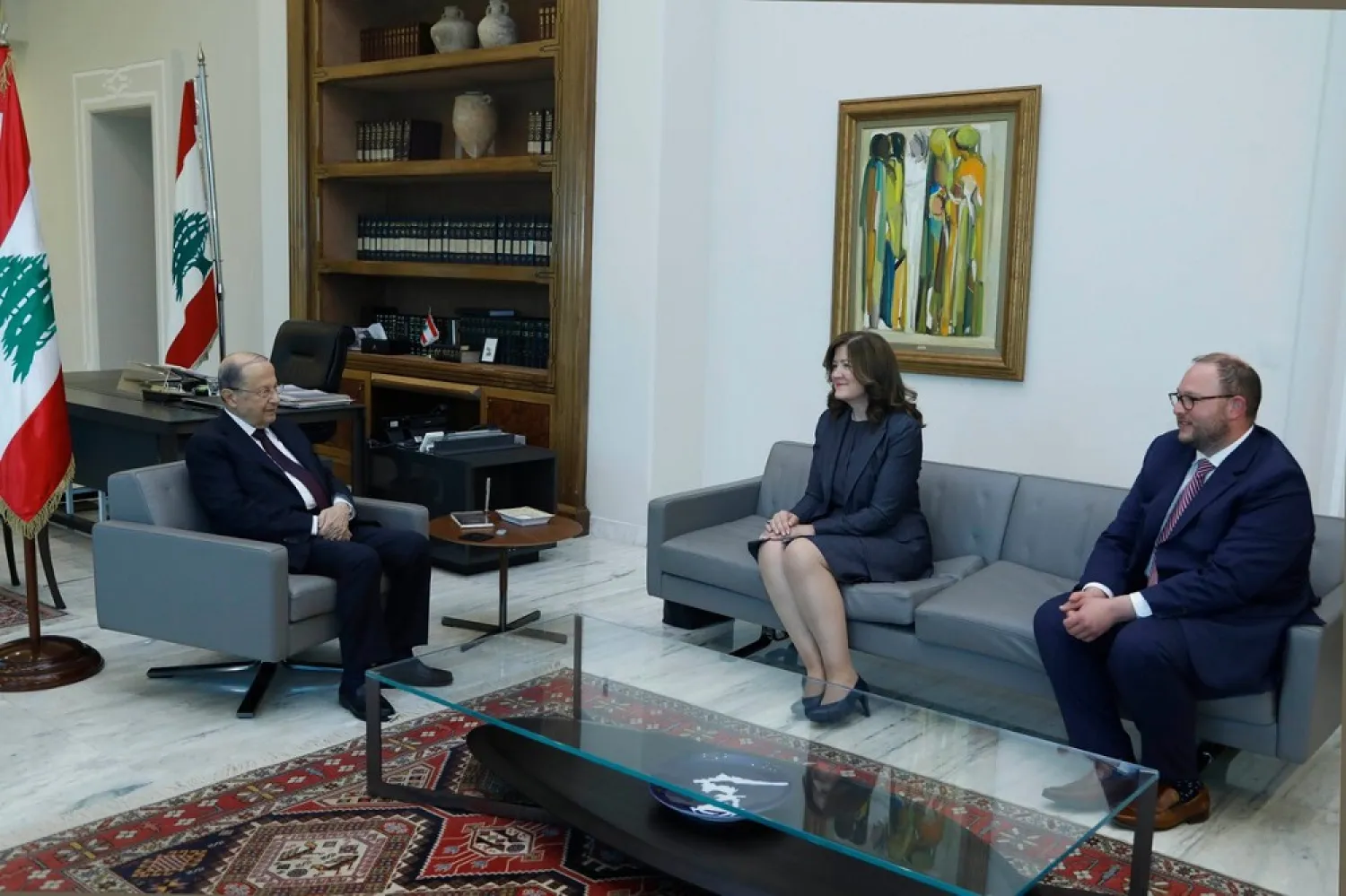US Embassy in Beirut Spokesperson Casey Bonfield said on Saturday: “In light of the tremendous economic problems Lebanon is facing, it is disappointing that some would appear to be focused on distracting.”
In a statement to Asharq Al-Awsat, Bonfield added: “We, as Americans, believe very much in freedom of expression. We know Lebanese people hold dear freedom of speech and a free press, as well. We stand with the Lebanese people.”
The remarks were made hours after Lebanese Judge Mohammed Mazeh banned media from publishing remarks by the US ambassador after she spoke about the Hezbollah party, in a disputed and non-binding decision.
During an interview with the Al-Hadath channel aired on Friday, Dorothy Shea reiterated US policy “that counterterrorism sanctions apply not only to Hezbollah but to those who provide them with material support.”
The ambassador said the US is still evaluating the extent to which the government of Prime Minister Hassan Diab is “what it says it is — an independent government of technocrats not beholden to Hezbollah.”
The US considers Hezbollah a terrorist organization but the group and its allies command a majority in parliament and the cabinet.
Shea said the US “has not yet seen what we hoped for from this government in the way of concrete steps to implement the reforms the economy so desperately needs.”
On Saturday, Mazeh, a judge in the southern city of Tyre, issued an arbitrary and non-binding order banning local and foreign media working in the country from airing or publishing locally comments by the US ambassador for a year.
“The US ambassador discussed in her interview a Lebanese party represented in parliament and cabinet and that enjoys a wide popular base,” the order said, referring to Hezbollah.
“The US ambassador has no right to talk about this party,” the order added, accusing her of promoting internal sedition and strife.
The judge acknowledged that international law gives diplomats immunity but said media could be punished for violating the order.
Information Minister Manal Abdel Samad dismissed the order, saying “no one has the right to ban the media from covering the news.”
Any issue pertaining to the media should pass through the information ministry and official judicial channels, she added.
Constitutional and legal expert Dr. Antoine Sfeir said the order was a “precedent” in the country.
Speaking to Asharq Al-Awsat, he questioned the move, adding that such issues should, according to the law, be handled by the foreign ministry as it is related to diplomatic relations, not the judicial authority.
President of the Justicia law firm, Paul Morcos described the order as “unusual” because diplomatic relations between countries are subject to international agreements, including the Vienna Convention on Diplomatic Relations.
These agreements grant ambassadors privileges and immunities and impose certain norms and standards on how to address them, he explained to Asharq Al-Awsat.
Local broadcaster LBCI said it would not abide by the ruling, calling it a “non-binding and unenforceable” decision that violates freedom of press.
It said it would challenge the ruling in court.
A senior judicial source accused the judge of over-stepping his prerogatives, telling AFP that the order is unenforceable under Lebanese law.









